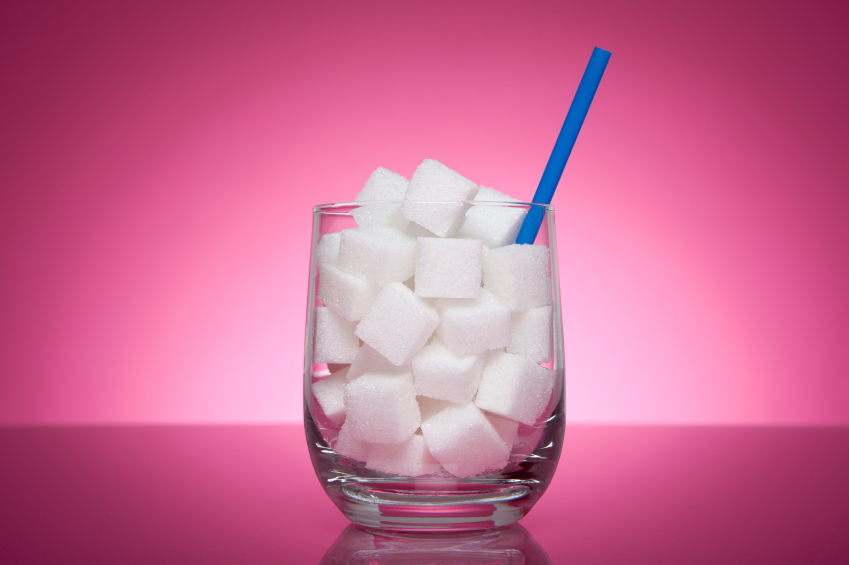Banish your sugar addiction
From the odd teaspoon in your cuppa to that sneaky afternoon slice of cake, sugar is a staple ingredient in many of our diets – and something a lot of us find hard to resist. In fact, according to the latest research sugar is four times more addictive than cocaine, and also very harmful.

Symptoms of sugar overload include energy dips, poor skin, obesity, diabetes, premature ageing and many other chronic health conditions. While fat was traditionally blamed for many of these problems, sugar is now shown to be far more harmful.
If you’re struggling to ditch the sweet stuff with willpower alone, read on for our ultimate guide to banish those cravings!
Portion control
“Aim for foods that have a low glycaemic load, as their impact on blood sugar level is minimal and you’ll be less likely to experience blood glucose highs and lows that will have you reaching for treats,” says Shona Wilkinson, head nutritionist at nutricentre.com. “Make sure each meal includes protein, non-starchy vegetables and unrefined carbohydrates. Limit sweet-tasting veg and opt for leafy greens like broccoli and spinach, which should ideally make up half your plate. Good proteins (lean turkey, eggs, fish, beans) are digested slowly and make you feel fuller for longer.”
Don’t skip breakfast
According to Dr Marilyn Glenville, the UK’s leading nutritionist (marilynglenville.com) and author of Fat Around The Middle, “If we don’t have breakfast, often by 11am we become hungry and crave sugar as our blood sugar levels drop too low. Try a healthy breakfast of two poached eggs on a slice of wholemeal bread with some rocket leaves, or a pot of sugar-free yoghurt with nuts and berries.”
Quit sugar, not snacks
“A healthy snack between meals can help while you’re giving up sugar, as it stops your sugar levels dropping too low, which can cause sweet cravings,” says Glenville. “Two oatcakes topped with a tablespoon of hummus or guacamole will help you to avoid irrational eating behaviour. Fruit contains a lot of sugar so avoid bananas (one banana has 12 grams of sugar – that’s three teaspoons!) and opt for berries as they are naturally low in sugar.”
Look after your gut
Nutritionist Cassandra Barns explains, “Overgrowth of unhelpful yeasts in the gut such as candida can intensify sugar cravings. Ironically, eating sugar makes the candida overgrowth worse, so we become stuck in the vicious circle. To help solve this, try taking a high-strength, good-quality probiotic supplement such as ProVen Adult High Strength Friendly Bacteria (£13.95).”
Go easy on the tea and coffee
Caffeine is a stimulant that causes our body’s stress hormones such as cortisol and adrenaline to be released, which can in turn cause a cycle of energy dips and peaks, and make you more likely to crave sugar later on. “Decaffeinated coffee and tea contain other stimulants, so try other options such as naturally caffeine-free rooibos tea or grain-based coffee alternatives,” says Glenville.
Say no to alternatives
When trying to give up or significantly reduce your sugar intake, it is not advisable to directly substitute all your sugar with sugar replacements, even if they are natural and safe. Barns explains, “We want to get away from relying on the sweet taste of sugar and learn to appreciate other tastes – a strategy that is more likely to give you success at cutting down in the long term, and will reduce the likelihood that you will fall back on sugar when the substitutes are not available. However, finding a natural sugar alternative can be useful for treats, and especially when you are first trying to give up.”
Try chromium
“Chromium has a vital role in supporting normal blood glucose levels, and therefore helps to prevent the dips that cause us to crave sugary foods,” explains Barns. “Try Quest Vitamins Chromium Picolinate (£4.21, questexcellence.com). Take one tablet a day, preferably with breakfast. This supplement also contains vitamin B3, which works closely together with chromium. It can take a month or longer to have its full effect, so persevere or start taking chromium before attempting to give up sugar.”
Think protein
Protein can help to fill you up for longer, which will stop you from craving sugary treats. “Protein-rich foods are broken down more slowly and therefore stay in the stomach longer, making us feel fuller,” says Wilkinson. “Ensuring we have a serving of protein-rich food (meat, fish, eggs, beans and lentils, nuts and seeds) with every meal can be helpful for controlling appetite and for weight management.”
Treat yourself
Give in a little. Wilkinson suggests, “Treat yourself to three squares of good-quality dark chocolate that’s minimum 70% cocoa – this amount will only contain a relatively small amount of sugar, and there is also evidence that dark chocolate has health benefits.” Eat a bit of what you’re craving and try to stick to a 150-calorie threshold for treats.
Take fish oil supplements
“Fish oils are not only an essential supplement for heart, joint and brain health, but they will keep you fuller for longer as they enhance insulin sensitivity,” Barns recommends. “Go for Nature’s Plus blend, Ultra Omega 3/6/9 (revital.co.uk, £17.75).”

One Response to Banish your sugar addiction
Leave a Reply
Please login or register to leave a comment.